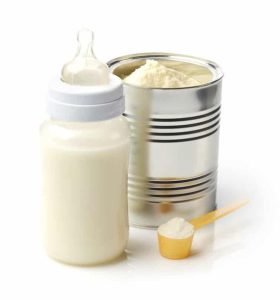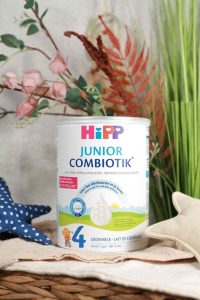Deciding what to feed your toddler can be confusing. There’s a lot of information out there about toddler formula, and it might leave you wondering if it’s a better choice than milk.
The truth is, both milk and toddler formula can be healthy options for toddlers. The best choice for your child depends on their individual needs and preferences. Here’s a breakdown of both options to help you make an informed decision.
Cow’s Milk: A Natural Choice
Cow’s milk is a natural source of many nutrients that are important for toddlers, including:
- Calcium: Builds strong bones and teeth
- Protein: Helps with growth and development
- Vitamin D: Supports bone health
- Vitamin B12: Important for energy production
Benefits of Cow’s Milk:
- Readily Available: Cow’s milk is widely available and affordable.
- Natural Source of Nutrients: Cow’s milk provides a good source of essential nutrients for toddlers.
- Easy to Digest: Most toddlers can easily digest cow’s milk.
Things to Consider with Cow’s Milk:
- Age: The American Academy of Pediatrics (AAP) recommends waiting until age 1 to introduce cow’s milk to your child.
- Whole Milk vs. Low-Fat Milk: For toddlers under age 2, choose whole milk. It provides healthy fats that are important for development.
- Lactose Intolerance: If your child has lactose intolerance, they may have trouble digesting cow’s milk. Talk to your doctor if you suspect this.
Toddler Formula: A Fortified Option
Toddler formula is a specific type of formula designed for children aged 1-3 years. It’s often fortified with additional nutrients that may not be found in cow’s milk, such as:
- Iron: Important for healthy red blood cells
- Vitamin E: An antioxidant that supports cell health
Benefits of Toddler Formula:
- Nutrient Fortification: Toddler formula can provide extra iron and other nutrients that may be helpful for some toddlers.
- Convenience: Formula is pre-measured and easy to prepare, which can be a time-saver for busy parents.
Things to Consider with Toddler Formula:
- Not Medically Necessary: Most healthy toddlers can get the nutrients they need from a balanced diet that includes cow’s milk.
- Cost: Toddler formula can be more expensive than cow’s milk.
- May Not Be Preferred by Toddlers: Some toddlers may not like the taste of toddler formula.
Talking to Your Doctor
The best way to decide if toddler formula is right for your child is to talk to your doctor. They can consider your child’s individual needs and growth patterns to make a recommendation.
Here are some questions to ask your doctor:
- Is cow’s milk or toddler formula right for my child?
- My child is a picky eater. Should I consider toddler formula?
- My child has a history of iron deficiency. Can toddler formula help?
There’s no one-size-fits-all answer to the question of whether milk or toddler formula is better. Both options can be healthy for toddlers, depending on their individual needs.
By understanding the benefits and considerations of each option, and talking to your doctor, you can make the best choice for your child’s growth and development.
Making the Choice: Milk or Toddler Formula
There’s no simple answer to the question of whether milk or toddler formula is better for your toddler. Both can be healthy choices, depending on your child’s individual needs and preferences. Here’s a breakdown to help you compare:
Cow’s Milk:
- Pros: Affordable, readily available, good source of calcium, protein, vitamin D, and B12, easy to digest for most toddlers.
- Cons: Not recommended before age 1, choose whole milk for under-2s, may not be suitable for lactose-intolerant toddlers.
Toddler Formula:
- Pros: Fortified with extra iron and other nutrients, convenient and pre-measured.
- Cons: Not medically necessary for most toddlers, can be expensive, some toddlers may dislike the taste.
Remember:
- Talk to your doctor: They can assess your child’s growth and needs to recommend the best option.
- Consider your child’s preferences: Some toddlers may have a taste preference for milk or formula.
Working with a Balanced Diet
The most important thing is to ensure your toddler gets a balanced diet that includes a variety of healthy foods from all food groups. This will provide them with the nutrients they need to thrive.
Here are some tips for creating a balanced toddler diet:
- Offer a variety of foods: Include fruits, vegetables, whole grains, lean protein, and healthy fats.
- Let your toddler explore: Encourage them to try new foods, but don’t force them to eat something they dislike.
- Make mealtimes positive: Create a relaxed and enjoyable atmosphere during meals.
If you have concerns about your toddler’s eating habits or their growth, always talk to your doctor. They can provide personalized advice and ensure your child is getting the nutrients they need.

Understanding Toddler Nutrition
Choosing the right foods and drinks for your toddler is important for their healthy development. Here’s a look at some key nutrients toddlers need and where they can get them:
Calcium: Builds strong bones and teeth. Found in milk, yogurt, cheese, and leafy green vegetables.
Protein: Helps with growth and development. Found in meat, poultry, fish, eggs, beans, and nuts (for toddlers over 2).
Vitamin D: Supports bone health. Found in milk (often fortified), fatty fish, and eggs.
Iron: Important for healthy red blood cells. Found in meat, poultry, fish, beans, lentils, and iron-fortified cereals.
A Balanced Diet is Key:
The best way to ensure your toddler gets the nutrients they need is to provide a balanced diet that includes a variety of healthy foods from all food groups. This includes:
- Fruits and Vegetables: Offer a variety of colors for a range of vitamins and minerals.
- Whole Grains: Choose whole-wheat bread, brown rice, and quinoa for fiber and other nutrients.
- Lean Protein: Include sources like chicken, fish, beans, and eggs.
- Healthy Fats: Provide healthy fats from sources like avocado, nuts (for toddlers over 2), and olive oil.

Milk or Toddler Formula?
Both cow’s milk and toddler formula can be part of a healthy toddler diet, depending on your child’s individual needs. Here are some resources to help you learn more:
- The American Academy of Pediatrics (AAP) link to American Academy of Pediatrics website has a page on toddler nutrition.
- The National Institutes of Health (NIH) link to National Institutes of Health website has information on child development.
If you have concerns about your toddler’s eating habits or growth, talk to your doctor. They can assess your child’s individual needs and provide personalized advice.



